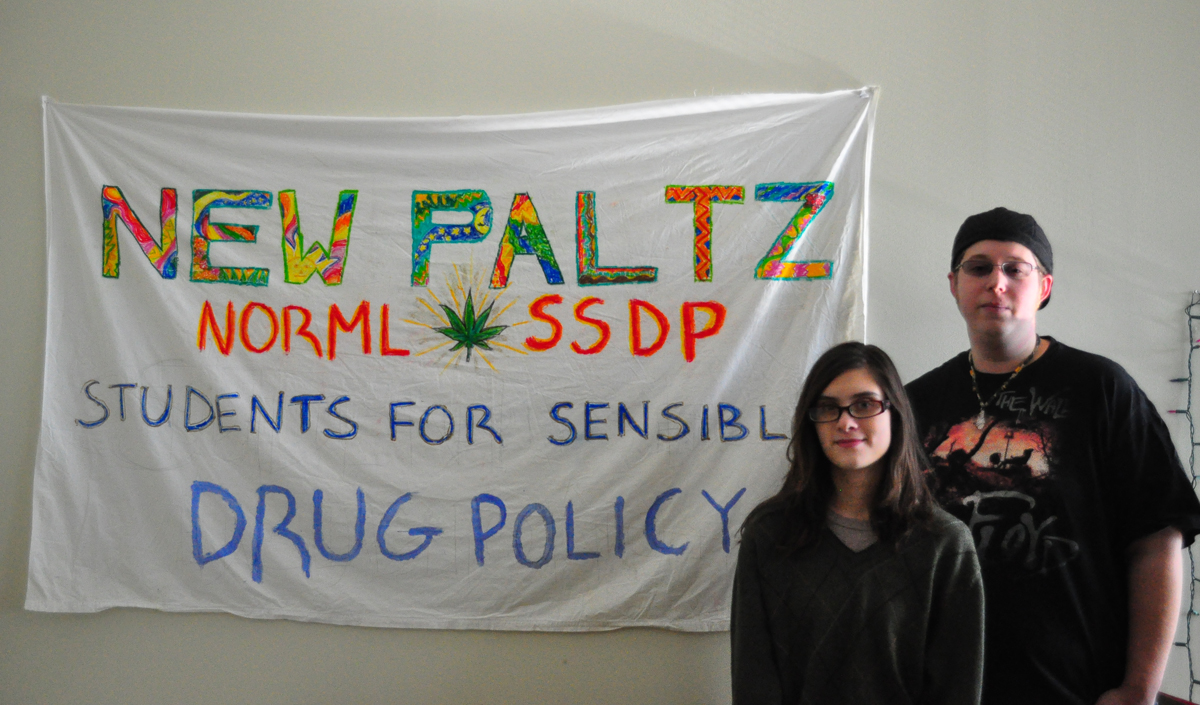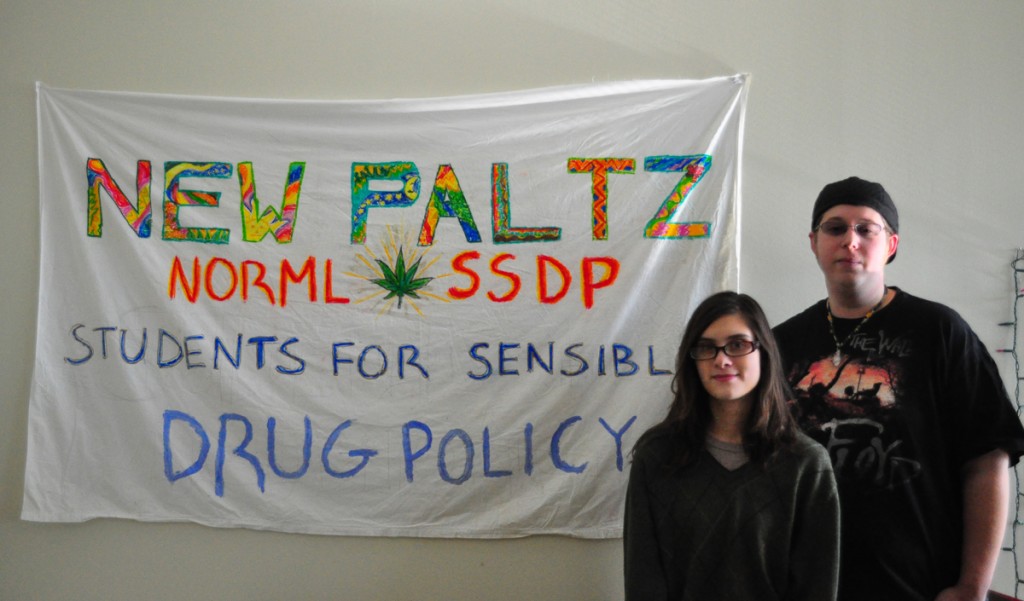

Student senators introduced a resolution last Tuesday that could be the first step in reforming the current drug policy at SUNY New Paltz.
The resolution, which was sponsored by Sen. Marc Pottak and co-sponsored by Sens. Samantha Kossin, Max Lasky, Chris Albach and Chris Thurston, said SUNY New Paltz holds the strictest policy concerning marijuana of all SUNY schools, and they hope to organize large scale discussion groups where students can voice their opinions about the current drug policy.
According to newpaltz.edu, New Paltz’s current drug policy is called the “No Second Chance Policy.” In regards to marijuana possession, it states that a penalty for the first offense or strike will be no less than disciplinary probation and educational and/or clinical intervention, but no more than expulsion. For a second offense or strike, the penalty is no less than expulsion.
Pottak said the goals of the forum would be to get student opinions about the policy and use these opinions to draft legislation.
“We are hoping to show that there is a consistent opinion about the policy on campus, and what kinds of changes people want to see,” Pottak said.
According to Pottak, the Student Association (SA) and the New Paltz chapter of the National Organization for the Reformation of Marijuana Laws (NORML) / Students for a Sensible Drug Policy (SSDP) chapter will co-sponsor the event, and could be held in the Multi Purpose Room at the Student Union.
However, Interim President Donald Christian said he would not consider changing the schools current drug policy this year.
He cited the school’s long-standing image as a reason he would be “careful” about changing the policy.
“The academic trajectory that we have been building has served us really, really well, and I have a responsibility to safeguard that and keep that reputation strong,” Christian said. “That would be my biggest hesitation about entertaining a notion to relax our policy.”
According to Christian, the school’s image as a “druggie campus” has been shed over the last few decades; however, he said this reputation is still in the minds of others despite New Paltz’s efforts to become an “academic gem of the SUNY system.”
New Paltz’s history of being a counterculture center has been publicized by various outlets, including the national marijuana magazine High Times. In their 2006 Top Counterculture College’s list, SUNY New Paltz was ranked No.7 in the nation.
Pottak said New Paltz’s current drug policy was a response to the town and campus’ image of the 1960s and 70s as a counterculture haven. However, he feels that New Paltz has changed drastically since then.
“New Paltz is a totally different school,” Pottak said. “You have to get high grades to get in…it’s not a big hippie school anymore.”
Pottak also said Newsweek’s recognition of SUNY New Paltz as “America’s Hottest Small State School” is an example of how the school’s image is changing.
He said he believes the town is now known for rock climbing and mountain biking rather than being “hippie party land.”
But Chief of Staff to the President’s Office Shelley Wright said changing the current drug policy could impact the value of a degree offered at SUNY New Paltz.
According to Wright, students should know the policies New Paltz has in place.
“The other thing I know we have pointed out in the past is that students have a choice about where they go to school,” Wright said. “They also are told at the front end what the policies are.”
The ultimate goal of the resolution, according to Pottak, would be to change New Paltz’s two-strike policy to a three-strike policy, which he said all other SUNY schools have.
Pottak said changing the policy would update New Paltz to what he believed to be a “SUNY standard.”After meeting with school officials, however, he was told there was no official standard that schools adhere to, but rather New Paltz does not have the three strike policy that other schools happen to have.
According to David Belsky, a representative from the Office of Communications at SUNY Administration, all SUNY campuses must adhere to all state and federal drug laws. He said each SUNY campus has their own polices regarding student conduct and the sanctions imposed for violating campus rules.
SUNY Albany’s Rights and Responsibilities state that if a student is caught possessing or using marijuana on their first offense there is action taken by the college, however expulsion is not mentioned as a penalty in a subsequent offense.
SUNY Oswego has a similar code and conduct about drugs, listing potential penalties for possession of marijuana. While expulsion is listed as a possible outcome, other consequences such as disciplinary probation are listed above for sanctions for subsequent offenses.
Students on campus were receptive to the idea of an open forum about drug policy.
Second-year contemporary music studies and music history and literature major Sonia Noriega said that she would go to the discussion to hear what people had to say.
“I don’t condone drugs, but I think that it should be left up to the student body as a whole to voice their opinion,” Noriega said.
Second-year student Kristin Moran thought the changing of the policy would likely benefit underclassmen.
“I think it’s a great idea to change the policy to three strikes instead of two mostly for freshmen who tend to ‘break free’ from their parents and don’t deserve to be kicked out of school for something like smoking pot,” Moran said.
Pottak said opinions gathered at the open forum will be used to develop more legislation about drug policy that he plans to bring forward to school administrators in the near future.
